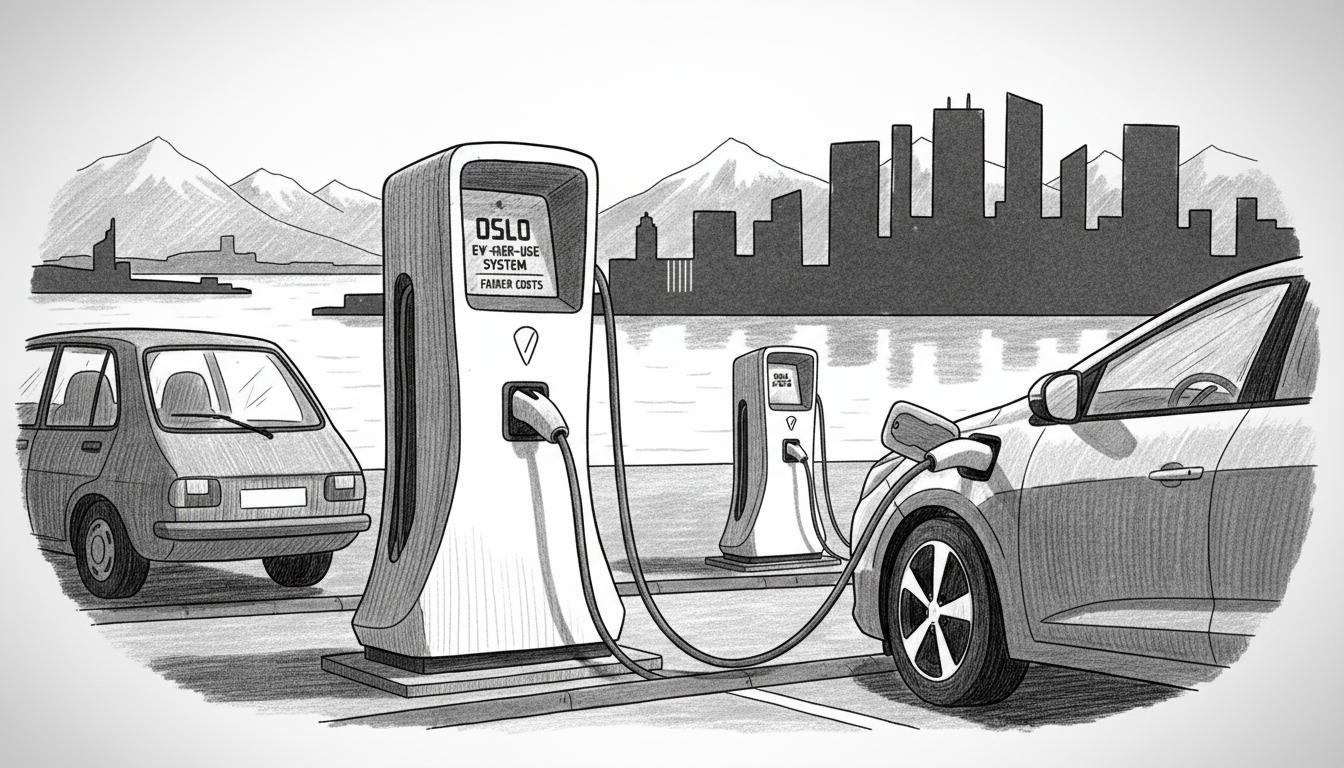Oslo's city government plans to overhaul its electric vehicle charging system. The current time-based payment model will soon disappear. Drivers will instead pay only for the electricity they actually consume.
The existing system charges vehicle owners for the time their car remains connected to charging stations. This approach has created financial burdens for many electric vehicle users. Owners of older electric cars face particularly high costs under the current arrangement.
City Council Leader Eirik Lae Solberg announced the policy shift in an official statement. He described the planned changes as creating a much fairer system for all electric vehicle owners. The reform addresses widespread complaints about the current payment structure.
Oslo operates approximately 2,500 public charging stations across the municipality. These stations serve the city's growing electric vehicle population. Norway leads the world in electric vehicle adoption per capita.
The timing-based system has drawn criticism for penalizing drivers with older electric vehicles. These cars typically charge more slowly than newer models. Owners therefore pay more for the same amount of electricity under the current pricing model.
This policy change reflects Oslo's ongoing commitment to sustainable transportation. The city aims to maintain its position as a global leader in electric vehicle infrastructure. Fair pricing represents a crucial component of this strategy.
What does this mean for international observers? Oslo's electric vehicle charging policies often influence other cities worldwide. The Norwegian capital serves as a testing ground for urban electric vehicle infrastructure. Successful implementation could inspire similar reforms elsewhere.
The transition to consumption-based pricing aligns with broader energy efficiency goals. It encourages responsible electricity use while maintaining charging accessibility. The change also supports Norway's national climate objectives.
Electric vehicle owners can expect more predictable charging costs under the new system. The reform eliminates financial penalties for drivers with older vehicles. This maintains equity as the electric vehicle market continues to evolve.
Oslo's charging network expansion continues alongside these pricing reforms. The city recognizes that reliable, affordable charging infrastructure remains essential for electric vehicle adoption. These parallel developments support Norway's ambitious environmental targets.
The practical implementation timeline remains unspecified. City officials will need to upgrade charging station technology and payment systems. These technical requirements may affect how quickly the new pricing model takes effect.

